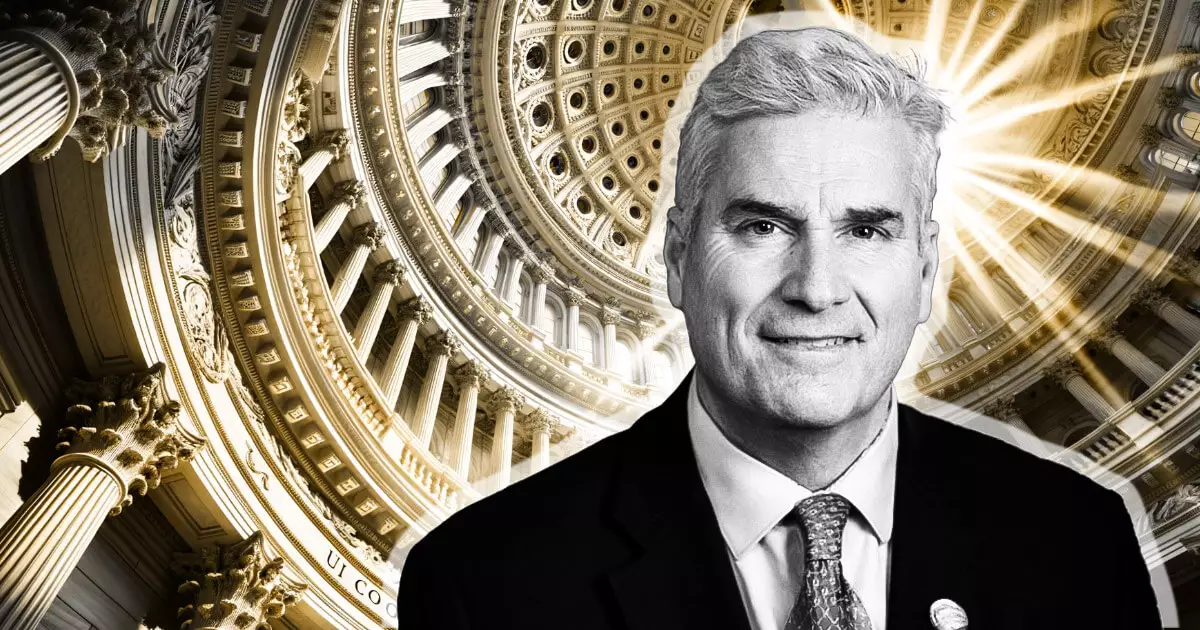House Majority Whip Tom Emmer recently expressed concern over government agencies collecting data on Bitcoin mining firms under the Biden administration. Emmer pointed out that the Office of Management and Budget (OMB) approved a request from the Energy Information Administration (EIA) for a new information collection regime targeting the Bitcoin mining industry. This move has sparked controversy as it was done without a comment period, raising questions about the necessity and potential harm of such data collection.
Emmer vehemently defended Bitcoin mining in his letter, declaring that it is not a threat to public safety. He emphasized the importance of Bitcoin mining firms in maintaining the integrity of the Bitcoin network and stressed that the technology embodies American values of openness and permissionless innovation. Emmer argued for a politically neutral policy towards the crypto industry and criticized the OMB for allegedly abusing its emergency powers to target Bitcoin miners.
Emmer linked the information collection policy to the Biden administration’s broader stance on energy consumption, accusing the OMB and EIA of enforcing regressive policies against the crypto industry. He referenced the Inflation Reduction Act introduced by the Biden administration in August 2022, which aimed to address rising energy prices. Emmer suggested that the EIA’s concerns about energy consumption during peak hours and extreme weather conditions are unfounded, as mining activity can be adjusted accordingly.
Emmer raised concerns about the breadth of data collection efforts by the EIA, comparing it to the US Securities and Exchange Commission’s (SEC) controversial attempts to collect similar information. He highlighted the potential consequences for companies that fail to comply with the data collection request, including criminal and civil penalties with daily fines of up to $10,000. The EIA’s survey of crypto-mining companies is set to continue until the end of July, with firms required to provide monthly reports on their operations.
The controversy surrounding the government’s data collection efforts on Bitcoin mining firms has sparked debate about the implications for the broader crypto industry. Critics argue that such policies could stifle innovation and hinder the growth of the sector, while proponents believe that regulatory oversight is necessary to address environmental concerns and energy consumption issues. The outcome of this ongoing debate remains uncertain, as stakeholders on both sides continue to advocate for their positions.
The controversy surrounding government data collection on Bitcoin mining firms reflects broader debates about the intersection of technology, regulation, and environmental policy. The outcome of these debates will have far-reaching implications for the future of the crypto industry and its relationship with regulatory authorities. It remains to be seen how the Biden administration and other government agencies will respond to the concerns raised by critics like Tom Emmer, and how these policies will impact the long-term sustainability and growth of the crypto sector.

